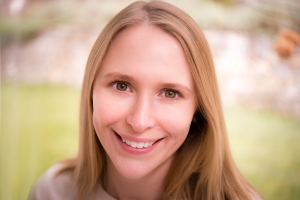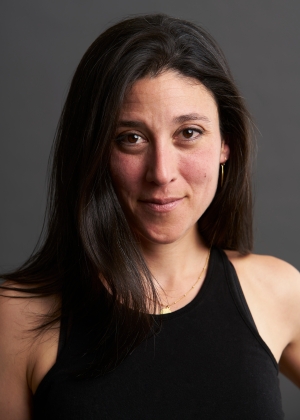

The Institute for Writing and Rhetoric gains three new faculty members this year: Annika Konrad, Clara Lewis, and Kate Rose. To help introduce them to our faculty and the College, we've asked them to answer a few brief questions.

Q: Can you tell us a little about yourself?
AK: I grew up in Milwaukee, Wisconsin and I knew I wanted to be a writer since middle school, when I wrote a poem about my sister and interviewed the editor-in-chief of the Chicago Tribune. I discovered the discipline of Composition and Rhetoric when I took a writing course (much like Writing 5!) at University of Wisconsin-Madison. I was inspired by my college writing teacher, who made me feel like a writer and I was amazed to learn that there is an entire discipline devoted to the study and teaching of writing, literacy, and rhetoric. Later in college I became an undergraduate peer writing tutor (Writing Fellow) and fell in love with mentoring student writers. I went on to receive my master's in English (Rhetoric, Composition, and Literacy) at Ohio State University, where I continued working in the writing center and teaching composition. Then I completed my PhD in English (Composition and Rhetoric) at University of Wisconsin-Madison, where I had the opportunity to practice writing program leadership as Assistant Director of the First-Year Writing Program, Assistant Director of the Writing Fellows Program, and as summer director of The Writing Center. Now I live in Hanover with my husband, Andy, who is a resident at Dartmouth-Hitchcock Medical Center and our alpha female cat, Maja, who rules our household. We are both thrilled to be working here and to explore New England!
Q: Can you talk a bit about your research interests/agenda?
AK: My most recent contributions to the field of Composition and Rhetoric come from my engagement with Disability Studies. Until I started a community-writing group for people who are blind and visually impaired, I never thought disability had anything to do with writing and rhetoric. It was then that I realized the study and practice of language is inseparable from embodied experience. As a researcher, I'm interested in understanding accessibility from a rhetorical perspective, or in other words, how arguments are made for (or against) accessibility. My current project focuses on the rhetorical work—verbal and embodied persuasive strategies—that people with disabilities have to do to gain access to employment, education, and social life. I'm currently writing new theory on what I term "access fatigue." Access fatigue is a theory I use to demonstrate the lived consequences of a logic of individual responsibility for access. I'm also interested in the relationship between accessibility, inclusivity, and writing pedagogies. The findings of my current study have led me to develop what I call "a rhetorical pedagogy of interdependence" that aims to teach habitual, collective uptake of access-oriented habits. I'm also interested in how accessibility calls us to rethink the rhetorical situation, particularly how we approach the relationship between speaker, audience, context, and mode. In the classroom and in my research, I aim to put access at the center of the rhetorical situation as a way to discover new ways of being, moving, doing, and knowing.
Q: What most excites you about joining the Institute and the College?
AK: I was drawn to the Institute for its national reputation for data-driven research about writing and rhetoric. I'm a qualitative researcher at heart—I love interviewing people and working with people's narratives. I'm excited to learn new ways to practice rigor of method and to stretch my research skills. I'm also thrilled to learn from students at Dartmouth—I can't wait to engage students at the intersections of disability, writing, and rhetoric because I know they will push my thinking in ways I never anticipated. I'm eager to see what kinds of accessibility problems students in my class choose to research and how they will practice writing and rhetoric to raise public attention. As a member of the campus community, I'm looking forward to collaborating with students, faculty, and staff to increase accessibility on campus and to promote disability as an identity that offers opportunities for learning.
Q: Can you share an interesting fact about yourself?
AK: I'm a Sweden fanatic (my mother is from Sweden) and a lover of soft-serve ice cream (those two things are not mutually exclusive). I am also legally blind, which makes some things in my life more difficult but also gives me insight I wouldn't have otherwise. I welcome any and all questions about Sweden, disability, ice cream, and writing pedagogy.

Q: Can you tell us a little about yourself?
CL: I completed my Ph.D. in American Studies at George Washington in 2010. Since then, I've taught at New York University and Stanford University.
Q: Can you talk a bit about your research interests/agenda?
CL: Previous work includes Tough on Hate? The Cultural Politics of Hate Crimes (Rutgers University Press) and articles on the visual culture of extreme sports, humanities stigma, grade inflation, gentrification and yoga, and the history of mechanization at Krispy Kreme Doughnuts. I am currently working on studies in critical criminology, sociology of law, and sociology of higher education. I am drawn to subjects that illuminate how we surf social, physical, and emotional extremes.
Q: What most excites you about joining the Institute and the College?
CL: I am most excited about the collaborative research environment, emphasis on undergraduate education, and longitudinal data opportunities offered at the Institute!
Q: Can you share an interesting fact about yourself?
CL: I am into riding my road bike and dropped out of yoga teacher training.